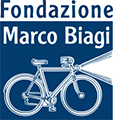18 dicembre 2023, ore 14.00 • Fondazione Marco Biagi
Introduce
GIOVANNI GALLO
Dipartimento di Economia Marco Biagi, Università di Modena and Reggio Emilia, Italia
Speaker
ARIANNA GATTA
The University of Queensland, Australia
Final Remarks
MASSIMO BALDINI
Dipartimento di Economia Marco Biagi, Università di Modena and Reggio Emilia, Italia
Abstract
Homelessness remains an unresolved issue worldwide, even in countries with high per-capita GDP levels and the presence of historically established welfare states. This form of extreme poverty persists despite the existence of welfare payments meant to reach those considered “truly needy”, such as means-tested targeted benefits. However tightly targeted benefits might be less accessible due to more stigma, bureaucratic complexity, and administrative errors. The accessibility of welfare payments and their potential for redistribution might have been further hindered by the upsurge of behavioral conditionality, especially for those most vulnerable. Thus, this work aims at answering the following research question: do tighter targeting and behavioral conditionality hinder the take up of welfare among the homeless?
I study this question through a probabilistic sample of 557 homeless interviewed in Rome (Italy) in March 2021. I focus on the take up of a Minimum Income Scheme (Reddito di Cittadinanza), the Covid-19 Emergency Payment (Reddito di Emergenza) and a Disability Benefit (Invalidità Civile). The relative importance of welfare stigma versus bureaucratic barriers was studied through two survey experiments. I manipulated perceived complexity and appropriateness of applying for welfare and observed how this affected willingness to apply.
Results show that welfare conditionality in the form of strict administrative requirements and lack of information can significantly limit the opportunity to even attempt applying. The availability of a phone significantly predicts access to conditional welfare payments requiring contact with local social and employment services. Administrative errors and benefit sanctions are the main determinants of low take up, while psychological barriers, such as perception of stigma and bureaucratic complexity play a limited role. Ultimately, overly targeted and conditional welfare payments fail to reach those most disadvantaged, contributing to persistence of their condition of deprivation.
Il seminario si terrà in lingua italiana ed è aperto e la partecipazione è libera.
Link per partecipare a distanza (non disponibile per dottorandi/e LSI): Clicca qui
Ulteriori informazioni: +390592056092 | phd_lavorosviluppoinnovazione@unimore.it

